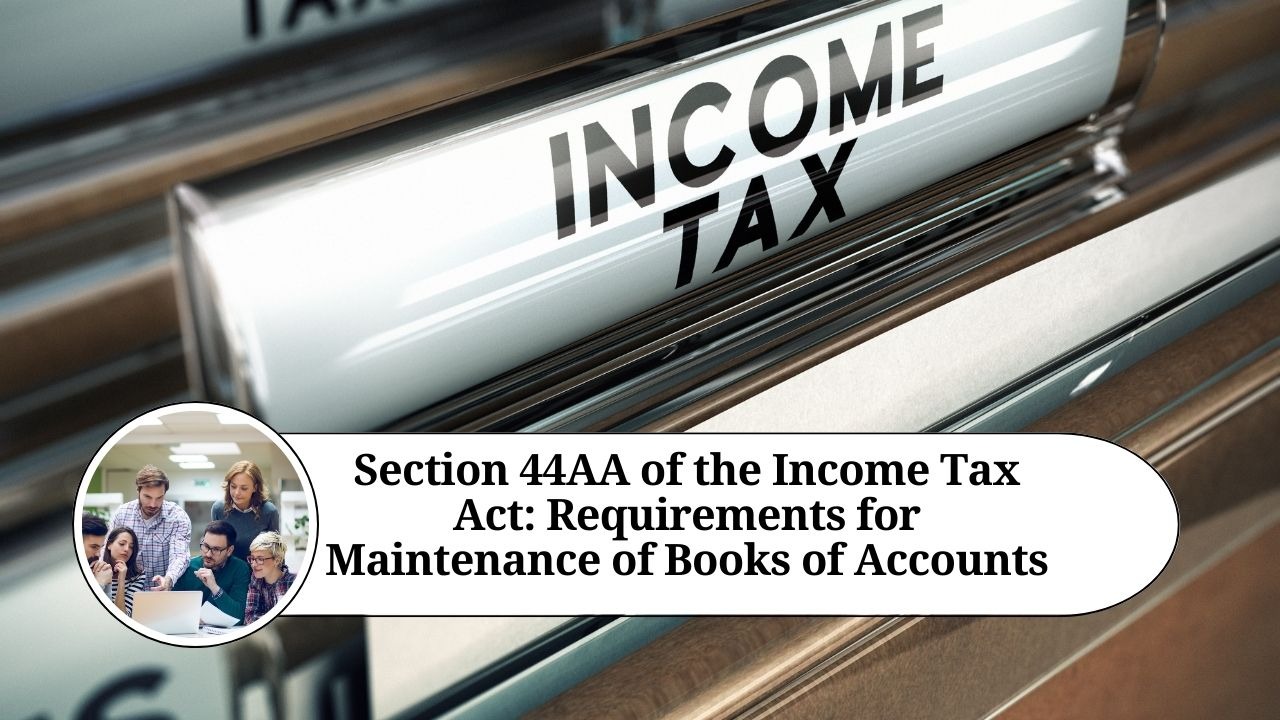
Follow WOWNEWS 24x7 on:
Updated: June 29, 2025 07:12

In a bid to promote more transparency and accountability in financial reporting, Section 44AA of the Income Tax Act mandates the maintenance of books of accounts by certain professionals and companies. The provision, though not recent, has recently gained renewed focus with the heightened scrutiny of tax returns and electronic audits.
Compliance Snapshot
Section 44AA will be applicable to individuals, Hindu Undivided Families (HUFs), and others engaged in business or profession.
It sets thresholds in respect of income, turnover, and type of profession to determine who must maintain detailed accounting records.
The provisions are also specified under Rule 6F, which lays down the books that are to be maintained by the notified professionals.
Applicability Criteria
For Specified Professionals (e.g., physicians, attorneys, architects, accountants, engineers, film artists):
Must maintain books if gross receipts are more than Rs 1.5 lakh in any of the previous three years.
For new installations, where receipts are expected to exceed this amount, compliance is mandatory.
For Business Entities:
If income exceeds Rs 2.5 lakh or turnover crosses Rs 25 lakh in any of the three preceding years (for individuals or HUFs), books must be maintained.
The cut-off is Rs 1.2 lakh of turnover or Rs 10 lakh of revenue for others.
For Presumptive Taxation Opt-Outs
Assessees covered under Sections 44AD, 44AE, 44BB, or 44BBB and showing income less than presumed profits are needed to maintain books.
Ordered Records under Rule 6F
Cash book and journal (if mercantile system is to be adopted)
Ledger
Duplicate invoices of Rs 25 and above and payment vouchers
For health workers: daily drug count and case register
Penalty Provisions
Default in maintenance of books can attract a penalty of Rs 25,000 under Section 271A.
In foreign transactions, the penalty can be as much as Rs 1 lakh.
Why It Matters Now With growing digitization of tax departments and faceless audits, proper record-keeping is no longer a choice but a necessity.
The requirement also facilitates improved financial planning, audit preparedness, and more effective loan or investment procedures.
Sources: TaxGuru, ClearTax, The Economic Times, Income Tax India Portal, The Hindu BusinessLine


